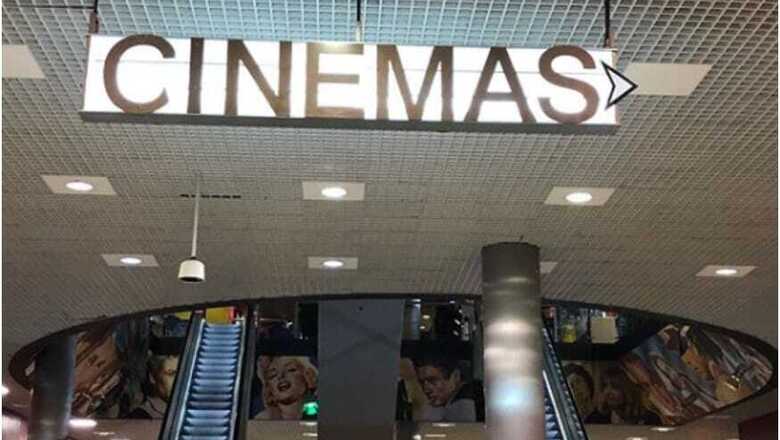
views
Cinema is the art of make-believe wherein the lines between illusion and reality can get blurred. We are sometimes tricked into believing what we see.
There's one illusion that appears to be real and efforts are constantly on to keep it appearing so. The illusion that films are best watched in a theatre.
Long ago, when technology and the avenues for leisure and entertainment were different from now, the theatre going experience could have been well worth the time and the money spent. But the times have changed and most of the advantages that theatres would have held then, no longer hold true.
The biggest advantage that a cinema hall still has in the movie watching experience is something that has been artificially created and controlled for primarily business reasons. Most movies are still first released on the big screen and other platforms have to often wait for months to get the real deal.
Even though many films are profitable even before they are released owing to in-film publicity, merchandise and other deals, box-office collections matter a lot. It is still the measure with which the worth of a movie is gauged. Ratings, reviews and awards are often for posterity.
But box offices have an unfair advantage. They thrive because of a controlled environment, in which passing through them is the only legit way in which a paying audience can watch a movie as soon as it is released.
This artificial scarcity that is one of the primary reasons for the poor-quality bootleg copies doing the rounds on the Internet and sold as polythene-packed DVDs on street corners. This practice of restricted release, in vogue in India since 'Hum Aapke Hain Koun..!' (1994), has encouraged piracy but it also has reaped benefits for filmmakers and this undoubtedly trickled down to us filmgoers by the way of improved quality of filmmaking.
The pirates have come a long way from the shaky and blurred VHS recording of Salman and Madhuri’s landmark on-screen romance that I first watched two decades ago when a CamRip of 'HAHK' was broadcast by the neighbourhood cable TV operator.
To counter this threat of piracy, the myth of the big screen experience is being hyped more than ever before.
A movie, they say, is meant to be watched on a screen that stretches all across the wall, in the company of people silently (or not) crunching their popcorns in the darkness.
Other (lawful) movie watching experiences, they say, are mere compromises. But is it?
I disagree.
'Johnny Gaddaar' (2007), that brilliant Shriram Raghavan movie, went off the screens even before the word could get around about its brilliance. Thankfully it was soon available on DVD. I watched the entire film on an LG KG300 with a 2-inch screen (a large-screen phone for those days) with earphones plugged in.
So engrossed I was watching the movie, that I watched the entire length at a stretch sitting on the floor amidst a power cut in Pandav Nagar (the then-unauthorised colony in East Delhi that was home to me for a good five years).
The medium isn't the message.
If the content is engrossing, it doesn't matter if the screen-size is in metres or centimetres. If it is surround sound or earphones.
I watched Shah Rukh Khan's mega-budget 'Ra.One' (2011) in 3D. That 'immersive experience' didn't make it a better film.
Content takes precedence over presentation.
The vast improvements in personal technology also isn't helping the theatre's cause. Large screen televisions and home theatre systems have recreated theatre-like experience in living rooms. OTT services have made finding and playing movies more accessible than ever before.
As communication is evolving, so are individual consumption behaviours. We have become more personal in our choices and consumption habits. In this context cinema halls appear to be caught in a time warp.
Theatre-going still remains largely a group activity (though I must confess watching Dilwale Dulhania Le Jayenge some 5-7 times all alone in a theatre). It is a family/friends outing, meant to be followed by Facebook check-ins and personal review posts.
Watching a movie on the big screen becomes an excuse for many to break the mundanity of the home. A lot of cinema has been escapist and going out for the movies can also be seen as an extension of that.
Escapism is ephemeral.
Unlike theatre, that cinema came in as an alternative (and even an extension), much of the core experiences of film watching remains intact even when it is taken out of the auditoriums, even onto a handheld device.
Accompanying my in-laws to an Indore multiplex back, a couple of years ago, I happened to notice that the video specs that preceded the film mention 1080p.
1080p! That's a resolution boasted by many smartphones and is is the minumum standard for home television sets.
This means that the same video that you can watch on your smartphone is being projected to the huge screen in front of you.
Bigger isn't necessarily better.
The best use for the inexpensive Google Cardboard virtual reality headset for me was not in the VR games and apps, but as a personal movie watching device. Both for 2D, as well as 3D movies. A VR headset can very well replicate the in-theatre experience of sitting before a massive screen minus the wailing babies and ringing phones.
Some VR apps can also add seats, audience and other theatre paraphernalia. Even though VR technology hasn't yet lived up to the hype of its early days, it is only getting better.
When you take cinema away from the public space into the private, along with comes control. The viewer now isn't a passive consumer. She can play the movie at her convenience. Pause, go back, skip forward, add subtitles. further enrich the movie watching experience. Also it is bad manners to have a second screen on inside a theatre, but in the privacy of your home - the movie watching experience can extend beyond.
Mukesh Ambani, at the Reliance Industries Limited AGM in August 2019, also echoed similar sentiments while unveiling his plans for same-day movie releases on digital platforms.
I haven't watched 'Sholay' (1975) on the big screen and chances are most people born after the late 1970s also didn't (notwithstanding the 'Sholay in 3D' released in 2014). But is the impact of Ramesh Sippy blockbuster on our minds any less than that of the people who watched in on the big screen?
COVID-19 has only added yet another compelling reason to this long list of why watching movies in theatres is overrated.
Follow @News18Movies for more


















Comments
0 comment